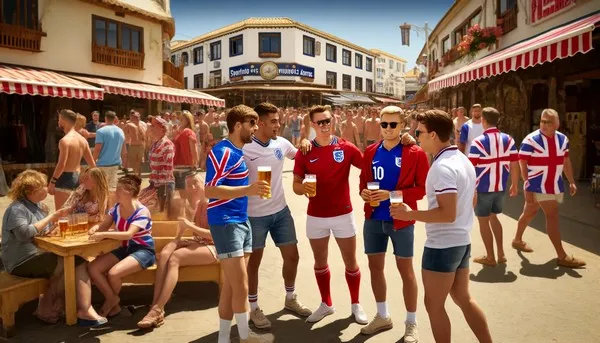Table of Contents
- Introduction
- Historical Foundations: Empire, Monarchy and Civic Myth‑Making
- Post‑War Transformations and Multiculturalism
- Contemporary Debates: Brexit, Devolution and the Fractured Union
- Theoretical Approaches to Britishness
- Empirical Dimensions: Everyday Britishness
- Digital Media and the Future of British Identity
- Conclusion: Towards a Reflexive Britishness
Introduction
What does it mean to be British in the twenty‑first century? The question appears deceptively simple, yet the sociological terrain it opens is vast and contested. British identity is not a static artefact stored intact in Westminster’s archives; it is a living, negotiated and often disputed social construction that draws on centuries of imperial expansion, waves of migration, regional distinctiveness, class stratification and the political ruptures of recent years, most notably Brexit.
For undergraduate sociologists, the British case offers a vivid laboratory in which classical theories of nationalism encounter the complexities of multiculturalism, globalisation and digital media. Investigating “Britishness” requires an interdisciplinary lens: economic history illuminates de‑industrialisation; cultural studies decodes sub‑cultural style; political sociology examines statecraft and policy; and social psychology explores identification and affect.
This article synthesises historical, theoretical and empirical insights to demonstrate how British identity is reproduced, challenged and re‑imagined. Moving from empire to TikTok, devolution to de‑industrialisation, we chart the dynamic forces that interpret Britishness today. Along the way we consider how structural power, symbolic resources and everyday practices intersect, producing multiple and frequently competing versions of what it means to belong to Britain.
Historical Foundations: Empire, Monarchy and Civic Myth‑Making
The long nineteenth century
The modern category “British” crystallised alongside the consolidation of the United Kingdom of Great Britain and Ireland in 1801 and the global expansion of the British Empire. Imperial circuits of trade, mission and military conquest embedded narratives of civilisational superiority, Anglican morality and parliamentary liberty. Within sociological terms, the empire functioned as a field (Bourdieu) in which symbolic capital—Britishness—was accrued by white metropolitan actors and exported as a hegemonic ideal.
At the same time, the industrial revolution generated internal class divisions that complicated nationalist narratives. The Chartist movement’s demand for the vote in 1838–48 signified a popular struggle to expand political membership within Britain itself, while the Irish Famine of 1845–52 destabilised any notion of a consensual, benevolent Union. Thus, even in its formative phase, British identity was contested from below and from the periphery.
War, welfare and the mid‑century settlement
Two World Wars forged a rhetoric of common sacrifice under the banner of King, Country and Empire. Wartime propaganda emphasised stoicism—think of the now ubiquitous “Keep Calm and Carry On” poster—while rationing and evacuation produced shared experiences across class lines. Yet racialised hierarchies persisted: colonial troops were instrumentalised in combat, their contributions often elided in public memory until recent campaigns for recognition.
The post‑1945 welfare state institutionalised a universalist sense of citizenship. Marshall’s tripartite model of rights (civil, political, social) gained tangible expression in the National Health Service, expanded secondary schooling and council housing. Academic observers at the time heralded a social‑democratic Britishness defined less by ethnic markers and more by shared entitlements. However, as later critics noted, universalism was aspirational; structural racism, gendered wage differentials and regional disparities persisted beneath the patriotic gloss.
De‑industrialisation and the crisis of the late twentieth century
The 1970s oil shocks and the Thatcherite restructuring of the 1980s decimated manufacturing heartlands in the North of England, South Wales and the Central Belt of Scotland. Sociologists such as Huw Beynon documented the closure of coal mines and steelworks, revealing how economic dislocation eroded working‑class solidarities that had anchored an older civic notion of Britishness. In the cultural sphere, Britpop nostalgically celebrated post‑war modernity, even as council estates were stigmatised and poverty became more spatially concentrated.
Post‑War Transformations and Multiculturalism
Commonwealth migration and race relations
From the arrival of the Empire Windrush in 1948, Britain encountered itself as a post‑imperial society. Sociological studies of Brixton, Southall and Bradford documented processes of racial formation in which phenotypical difference became a key axis of exclusion. In workplaces and housing markets, Caribbean and South Asian migrants faced colour bars that contradicted the proclaimed universality of the welfare state. The 1965, 1968 and 1976 Race Relations Acts—while landmark legislation—also signalled the state’s reluctant acknowledgement that its self‑image as tolerant was under strain.
The 1981 uprisings in Brixton, Toxteth and Moss Side laid bare tensions between minority youth and policing institutions. Stuart Hall and the Centre for Contemporary Cultural Studies (CCCS) interpreted these confrontations through the lens of authoritarian populism, positioning them as struggles over state hegemony rather than spontaneous disorder. Minority resistance foregrounded a diasporic Britishness—Black British, British Asian—that refused the binary of assimilation or separatism.
The politics of recognition
By the 1990s, policy discourse framed “multiculturalism” as both celebration (carnivals, curricula) and containment (community policing, targeted funding). While city councils used partnership boards to consult “community leaders,” critics argued that funding regimes froze identities into ethnic “silos,” privileging spokespersons and marginalising intra‑community diversity, including gender and generational cleavages. Hall’s seminal intervention reframed Britain as a nation of diasporas, highlighting how hybridity, rather than purity, constitutes the cultural mainstream.
Contemporary Debates: Brexit, Devolution and the Fractured Union
Brexit as moral panic and constitutional crisis
Get the full article AD FREE. Join now for full access to all premium articles.
View Plans & Subscribe Already a member? Log in.





